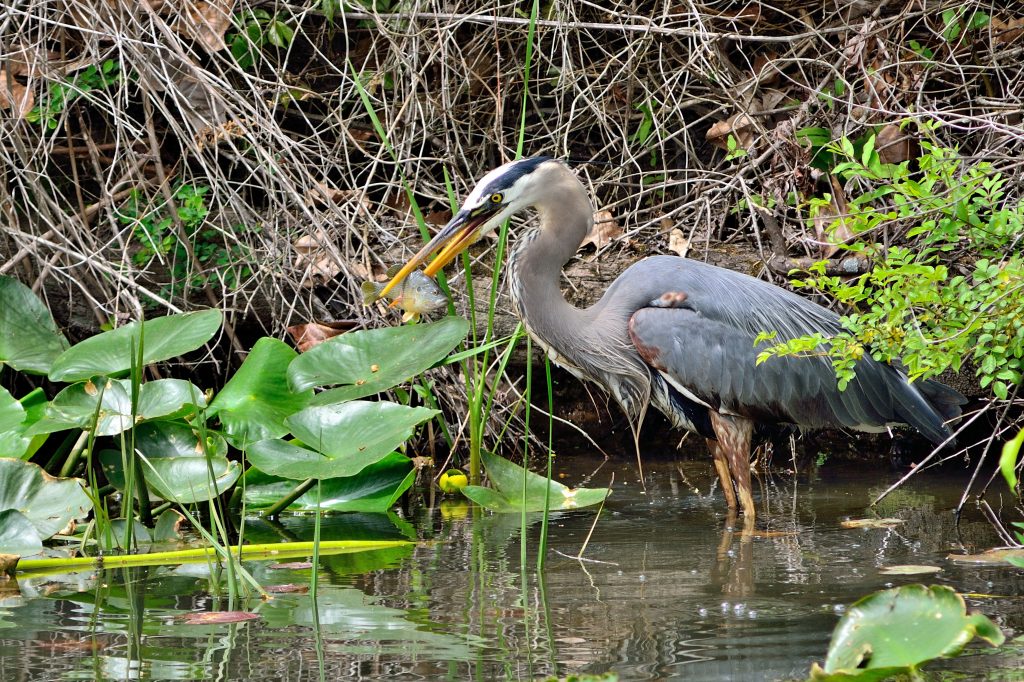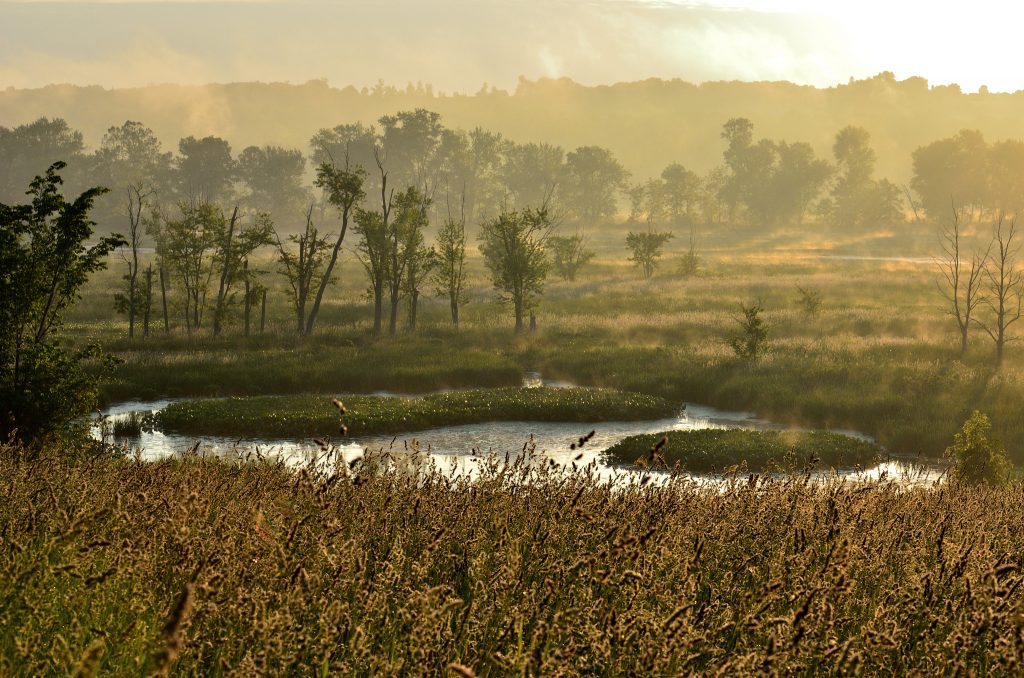On a weekend photo shoot & camping trip, I was talking with my camp neighbors, who saw me lurking along the bank of the river, shooting birds. They asked about my photos, and of course I was happy to show them some of my favorites from a previous outing. Looking through shots on my phone, they made appropriate complimentary noises, and then came to one shot of a great blue heron with a fish in its mouth. “Oh,” the wife said. “How lucky that you happened to be there at just the right time, and with a camera!”
You’ll hear that kind of comment a lot, if you spend much time doing nature or wildlife photography. “How lucky that you had a camera when that deer came out of the woods nearby.” “How lucky that you just happened to be there when the sun was setting and made such a pretty scene on the side of that hill.” Because people who aren’t into photography really don’t have a clue how much preparation and effort actually goes into making those shots.
You study photography, and learn the camera controls, and concepts, and techniques. You learn, and you practice, and you work at it, for hundreds of hours. You go out on countless excursions, scout locations, drive for many miles, spend hours hiking, finding places where the scenery or the wildlife might provide promising subjects. You learn to deal with poison ivy, and insect bites, and sunburn, and scratches & lacerations from thorns & brambles. You get up hours before sunrise, pile gear into the car, drive to a pre-selected area, pack equipment on your back through fields and woods and hills, get to a site, set up a tripod, select your lens and camera settings, and wait for dawn, watching the light, trying different shots, changing and tweaking the exposure, shifting point of view, working to capture a special, fleeting moment. Later, at home, you pore through the dozens or hundreds of exposures, culling and sifting, and selecting the most promising ones, and then spend time processing them for best effect, to produce a good image. And then someone sees the final product of all your hours, thought, study, exertions, patience, and effort, and says, “Oh, how lucky you were to get that shot!”
If you’re polite, you won’t bother trying to correct their illusions about “lucky shots”; you’ll just smile and say thank you. When the woman exclaimed how lucky I was to have gotten that shot of the heron eating lunch, I didn’t tell her that I had been going to that location for over a year, hiking along the bank, watching and getting to know the birds and wildlife of the area. I didn’t explain that I frequently went out there, with a camera, looking specifically for opportunities to capture shots of the birds. I said nothing about having watched that particular heron for a long time that day, stalking it from the opposite bank, while it was stalking fish, and that I’d studied their habits and knew when it was preparing to strike at a fish. So when it finally snapped its head into the water, I was ready, and shot perhaps a couple dozen frames to capture the action of a heron catching and devouring its lunch.
There are those rare times when you do just “get lucky.” But the vast majority of good photographs don’t happen by luck; they’re the result of effort, patience, preparation, study, and practice. Hoping to get lots of great shots by sitting around just waiting for luck? Good luck with that.



